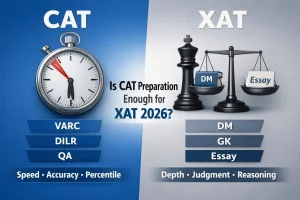The media and entertainment industry is a vibrant and dynamic field that has witnessed exponential growth over the years. As technology continues to evolve and consumer preferences shift, the demand for skilled professionals in this sector is ever-increasing. Pursuing an MBA Media and Entertainment, or a post graduation in Media and Entertainment can open up a plethora of exciting career opportunities.
The media and entertainment industry encompasses a wide range of sectors, including television, film, radio, digital media, advertising, public relations, and event management. With the rapid advancement in technology and the proliferation of digital platforms, the industry has become more diverse and complex. An MBA Media and Entertainment equips students with the knowledge and skills required to navigate this multifaceted industry and thrive in various roles.
Why MBA in Media and Entertainment?
An MBA Media and Entertainment offers several unique advantages. First and foremost, it provides a comprehensive understanding of the industry, covering everything from content creation to distribution, marketing, and management. Students gain insights into the latest trends and technologies shaping the industry, as well as the business acumen needed to succeed in managerial roles.
Additionally, a PGDM in media and entertainment offers exposure to real-world projects, internships, and networking opportunities with industry professionals. This hands-on experience is invaluable in preparing students for the dynamic and competitive landscape of the media and entertainment industry.
Eligibility
The eligibility criteria for an MBA Media and Entertainment vary depending on the institution. However, most programs require candidates to have a bachelor’s degree in any discipline from a recognized university. Some programs may also require relevant work experience in the media and entertainment industry.
Prospective students should research the specific requirements of the media management courses in Mumbai and other locations to ensure they meet the eligibility criteria for their PG in media and entertainment.
Career Opportunities after MBA in Media and Entertainment
Graduates of MBA programs in Media and Entertainment can explore a wide range of career opportunities in various sectors. Here are some of the prominent roles:
- Social Media Manager
A Social Media Manager is responsible for managing an organization’s social media presence. This includes creating and curating content, engaging with the audience, and analyzing metrics to measure the effectiveness of social media campaigns. With the increasing importance of digital platforms, social media managers play a crucial role in building brand awareness and driving engagement.
- Content Manager
Content Managers oversee the creation, management, and distribution of content across various platforms. They work closely with writers, designers, and other creatives to ensure that the content aligns with the organization’s goals and resonates with the target audience. Strong organizational and communication skills are essential for success in this role.
- TV Producer
TV Producers are involved in all aspects of television production, from concept development to post-production. They are responsible for budgeting, scheduling, and coordinating with various departments to ensure the successful execution of TV shows. Creativity, leadership, and project management skills are vital for TV producers.
- Channel Head
Channel Heads oversee the operations of a TV channel or network. They are responsible for programming, content acquisition, marketing, and overall strategy. This role requires a deep understanding of the industry, strong leadership skills, and the ability to make strategic decisions to drive viewership and revenue.
- Advertising
Professionals in advertising develop and manage advertising campaigns across various media platforms. This includes creating compelling ads, negotiating media buys, and analyzing campaign performance. Creative thinking, strategic planning, and strong communication skills are essential for success in advertising.
- Public Relations
Public Relations (PR) professionals manage an organization’s public image and reputation. They are responsible for crafting press releases, organizing events, and building relationships with the media and other stakeholders. Strong interpersonal and communication skills are crucial for PR professionals.
- Marketing
Marketing professionals develop and implement marketing strategies to promote products or services. This includes conducting market research, creating marketing campaigns, and analysing consumer behaviour. Analytical thinking, creativity, and strong problem-solving skills are essential for success in marketing.
- Event management
Event Managers plan and execute events, such as conferences, festivals, and product launches. They are responsible for coordinating with vendors, managing logistics, and ensuring that events run smoothly. Strong organizational and project management skills are key to success in event management.
- Digital Media
Digital Media professionals manage digital content and online platforms, such as websites, blogs, and social media. They are responsible for creating engaging content, analysing web traffic, and optimizing digital strategies. Technical proficiency, creativity, and analytical skills are essential for success in digital media.
Related Blog: Career Opportunities in Media Industry after MBA/PGDM
Conclusion
An MBA in Media and Entertainment offers a wide range of career opportunities in a dynamic and fast-paced industry. Whether you are interested in social media management, content creation, television production, or digital media, there are numerous roles to explore. By acquiring the right skills and knowledge, graduates can thrive in various sectors and contribute to the ever-evolving landscape of media and entertainment.






